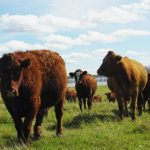Layoff notices for about 100 workers at Moose Jaw Pork Packers were expected to go out this week as the plant’s kill floor remained closed.
Dave Worke, who took over Sept. 6 as chief executive officer, said he hoped the situation would be temporary but there was no other choice.
“We have no money coming in, other than our receivables,” he said Sept. 11. “We have to get our receivables collected.”
The plant closed Aug. 31 after the company stopped taking hog deliveries. Tight margins made it more difficult than expected for the company to make a go of it and customer payments were slow.
Read Also

British Columbia farmers to receive increased AgriStability supports
B.C. farmers to receive bump in AgriStability compensations due to weather concerns, international trade instability
The Moose Jaw plant had just reopened in June after closing more than a year ago because it couldn’t pay producers. The board of directors resigned Aug. 28 and the plant stopped accepting hogs three days later.
The employee shareholders, through a labour-sponsored venture capital corporation, hired Worke to replace Don Fancourt.
Worke said he spent his first days on the job meeting with shareholders and contacting customers to begin collecting the money owed to the company.
He said paying producers who are once again owed money is a priority.
“We have enough receivables to cover a lot of it and we’ve got product that is unsold at this point,” he said.
Finding new customers is also on his to-do list.
Worke, who spent 23 years at Intercontinental Packers, five years at Western Canadian Beef Packers and two years at two U.S. pork plants, said he’s optimistic a new financial plan will satisfy shareholders and lenders.
Any plan will be aided by lower hog prices, he added.
Jeff MacPherson, executive vice-president at Conexus Credit Union, said there was no truth to a rumour that the lender triggered the plant’s closure.
“We did not shut down the operating line of credit,” he said. “They contacted us. We’ve only reacted to what they’ve done. We’re in a wait-and-see mode.”
MacPherson said it’s unusual for a company to find itself in trouble so soon after restructuring. Either the business case was flawed or the market dynamics changed so significantly the company wasn’t able to react.
Hog producers, meanwhile, are finding alternative markets for their finished hogs, including in Manitoba, Alberta and the United States.
Don Hrapchak, general manager of SPI Marketing Group, said the agency sent only a small number of hogs to Moose Jaw.
He wondered whether producers would take another chance on the plant, should it reopen, given the difficulties of the last 18 months.
















